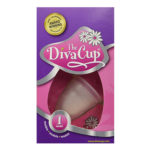 illus. of Paraguard IUD via Med.unc.edu
illus. of Paraguard IUD via Med.unc.edu
Move over, Pill! According to the American College of Obstetricians and Gynecologists (ACOG), the IUD is a whole lot more effective — and safer than was traditionally thought. For a long time IUDs have been recommended only for women in long-term monogamous relationships who’d already had children — this was based on concerns that IUDs raised the risk of pelvic inflammatory disease (PID), which, left untreated, can cause infertility. But according to ACOG, the evidence does not support these concerns — meaning, IUDs do not cause PID.
When you combine this news with what we already knew — the overwhelming effectiveness of a device that you insert once every five or ten years, as compared to a pill that you have to remember to take daily — it’s kind of a no-brainer. Or, at least, the IUD is definitely a contender. Currently it’s the redheaded stepchild of the birth control world — in 2008, IUDs, were the chosen method of 5.5% of women using contraceptives (and only 1.3% in 2002). But as more and more women find out that (a) IUDs are a lot safer than they’d been warned and (b) a lot more effective than the Pill or condoms, we’re guessing that will change. Here’s more from us on IUDs:

















Colin,
Yes, I should have specified that the IUD is not popular in the U.S., unlike in the rest of the world. Thanks for letting me clarify.
Dr. Kate
In this post you refer to IUDs as “the redheaded stepchild of the birth control world” because of their low usage, but “The Low Down on IUDs, Part 1” that you link to says they’re “the most popular form of reversible birth control in the world” – which is it? Are you referring to US stats here and the whole world in “The Low Down”?
Thank you! It’s been, what, 45 years since sales of the infamous Dalkon Shield IUD were suspended. And virtually everything we “know” about how bad IUDs are comes from… the Dalkon Shield. It’s also been roughly 40 years since the first copper-wrapped mini-IUD was introduced.
This is still not to say the IUD is perfect for everyone, but as you say it’s more perfect for more people than The Pill or other heavy-duty hormonal contraceptives like shots or Norplant.
If the ACOG has greenlighted it a lot of caregivers who’ve been reluctant to prescribe IUDs are more likely to get on board.
For what it’s worth, one of the biggest arguments against IUDs is that they don’t protect from STIs. But since hormonal contraceptives don’t either that’s always been a wash. But with IUDs you can use condoms for what they do best: minimize risk of STI transmission, while leaving the IUD to do what it does best: preventing pregnancy when there are condom slip-ups.
Finally, speaking of condoms, for people who could be “fluid bonded” but still rely on condoms for contraception, the up-front cost of an IUD might be relatively high but five to ten years worth of condoms aren’t exactly cheap either.
figleaf